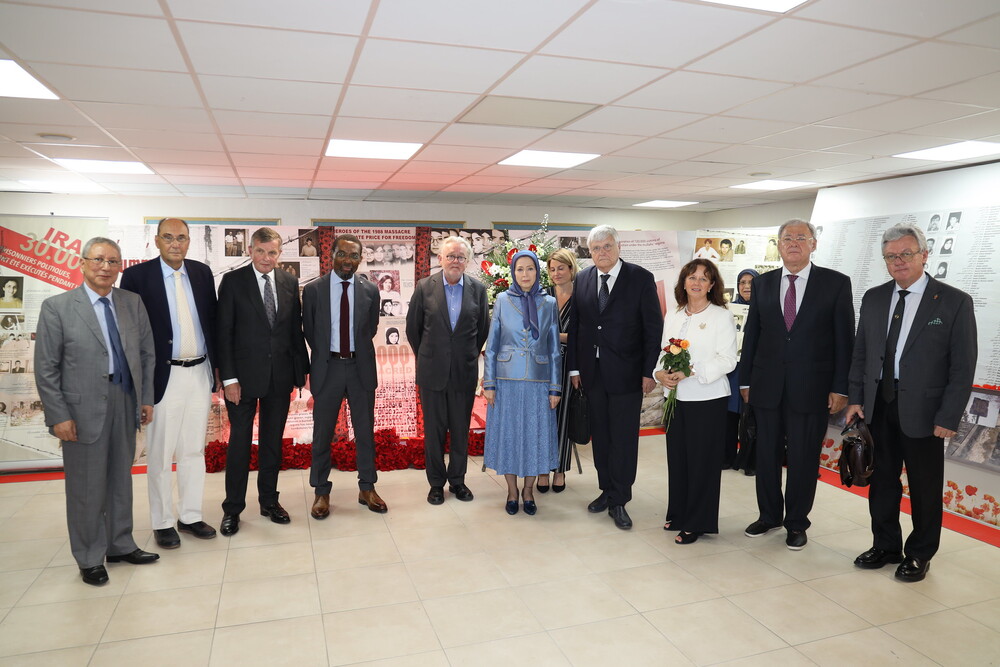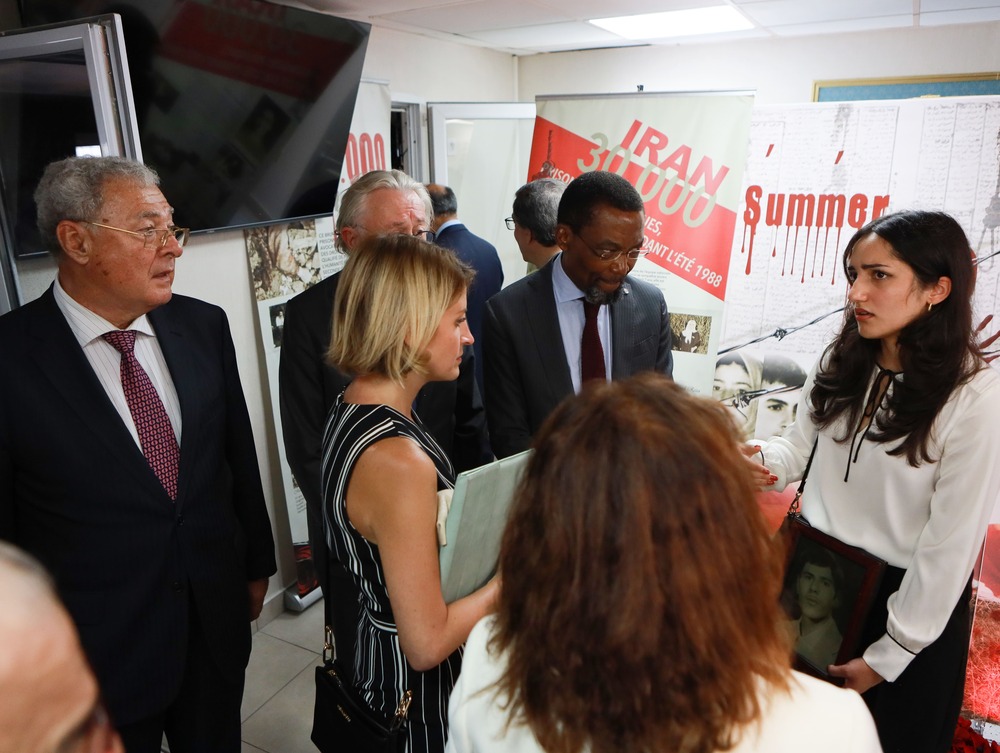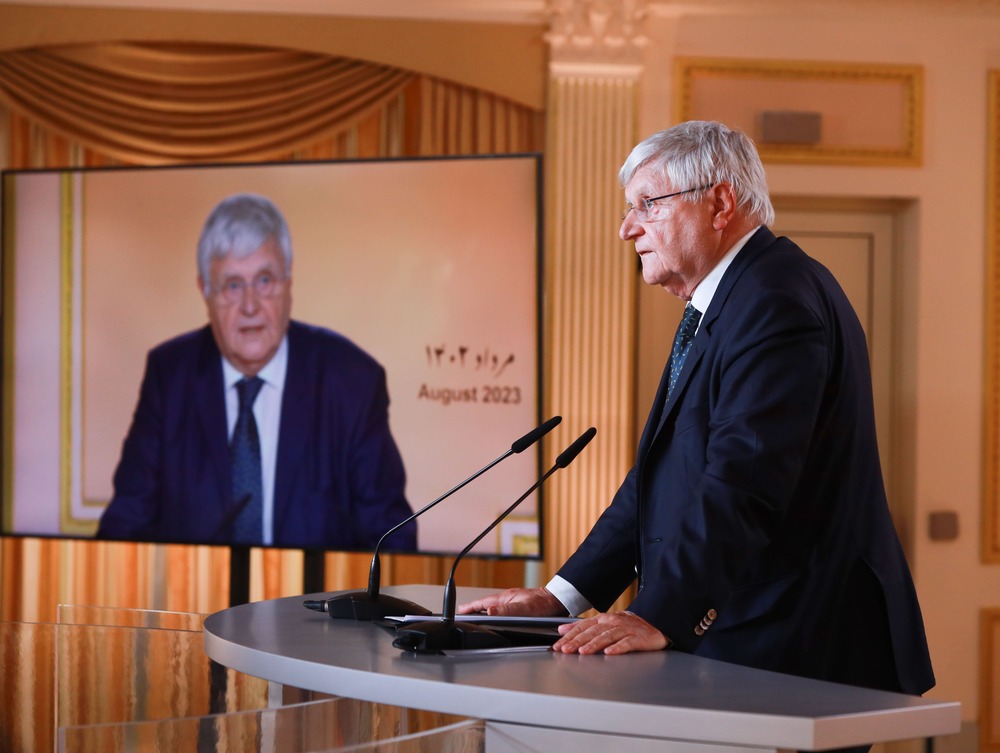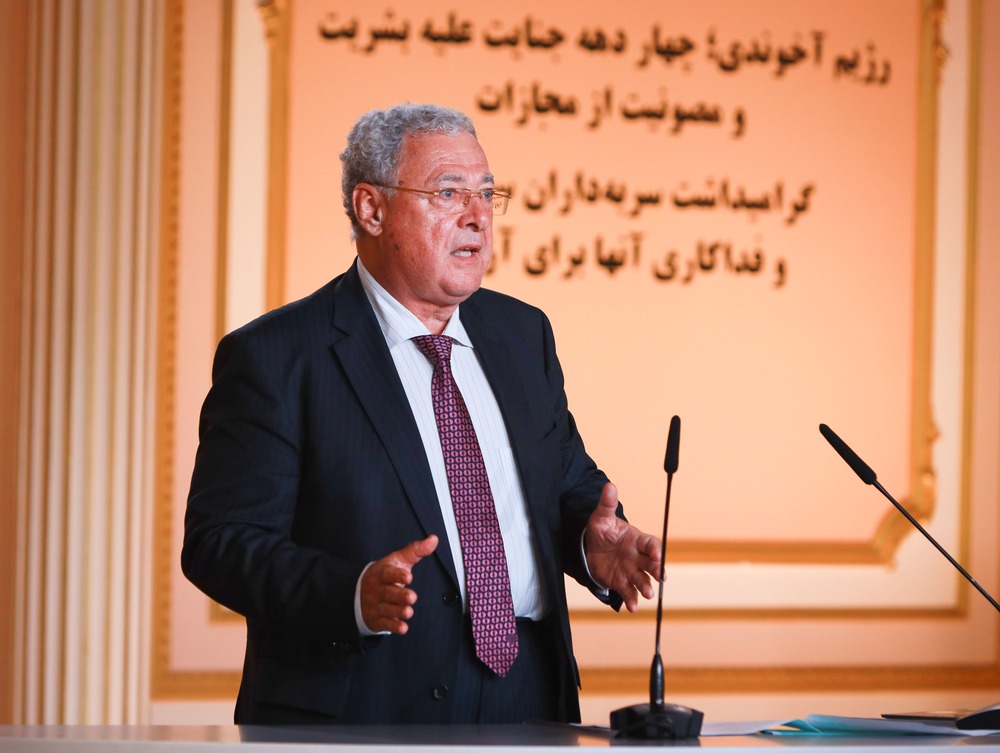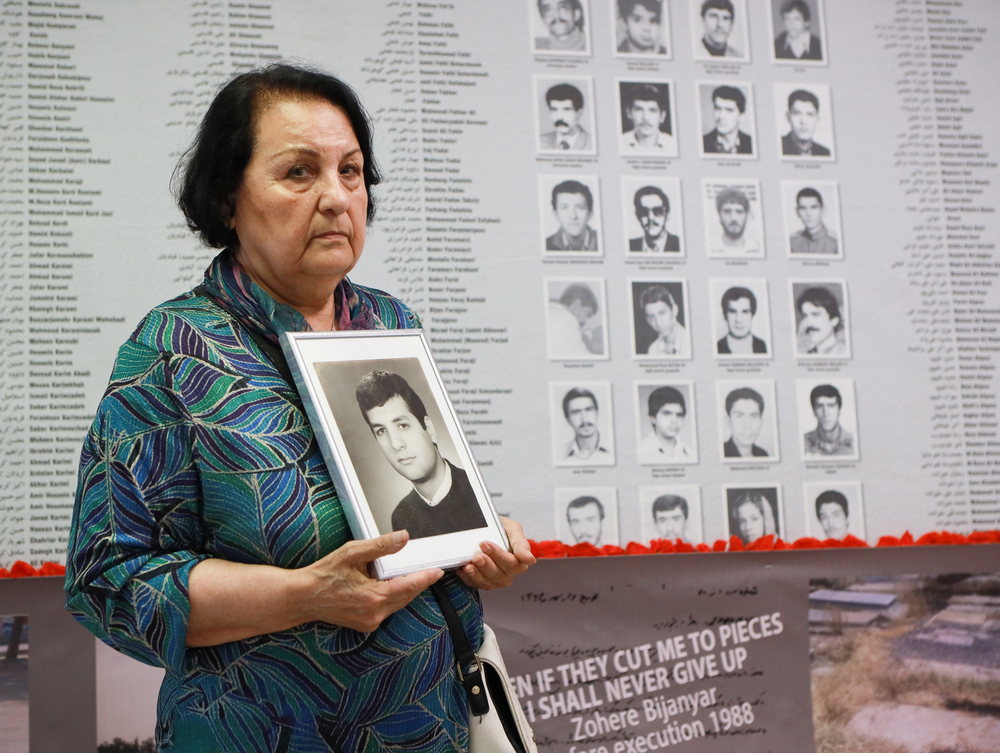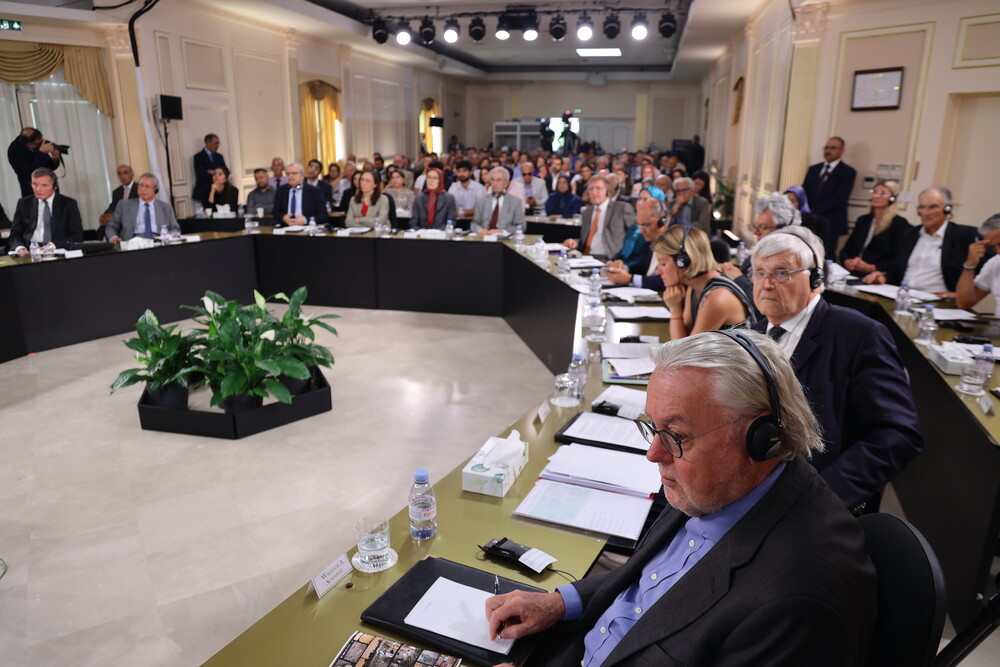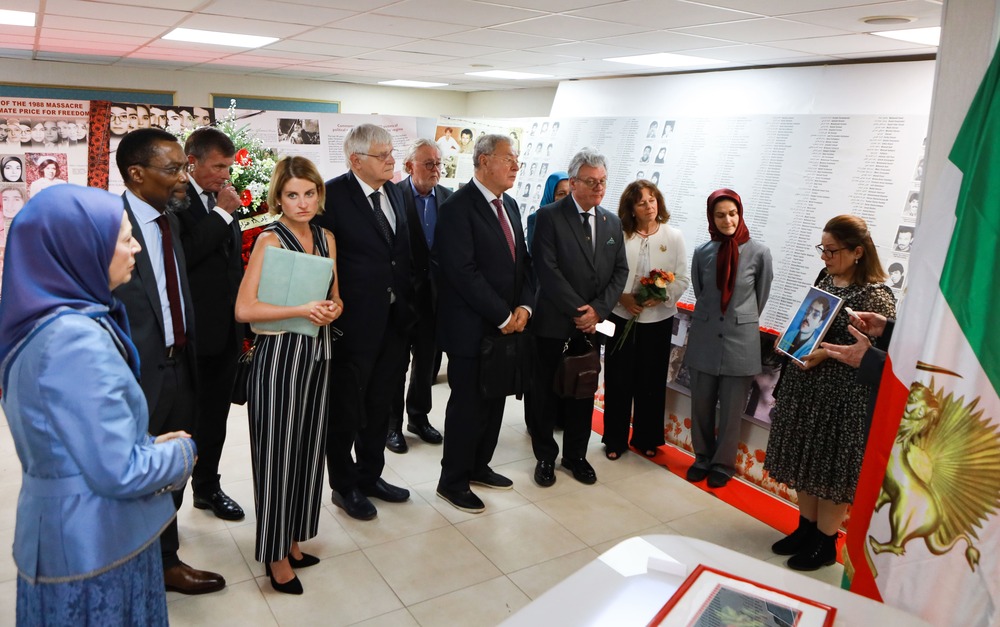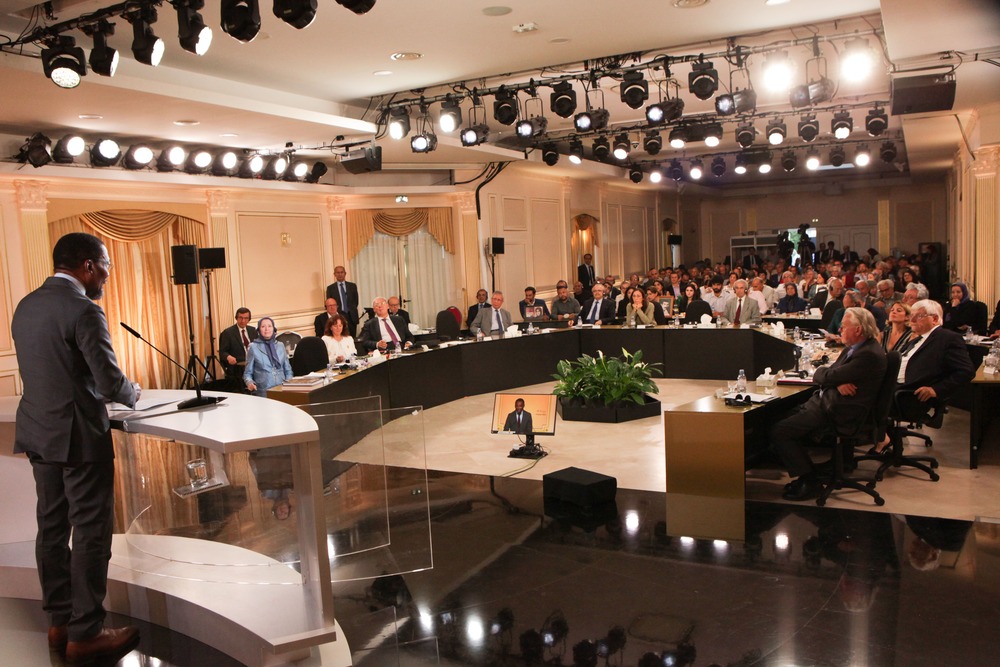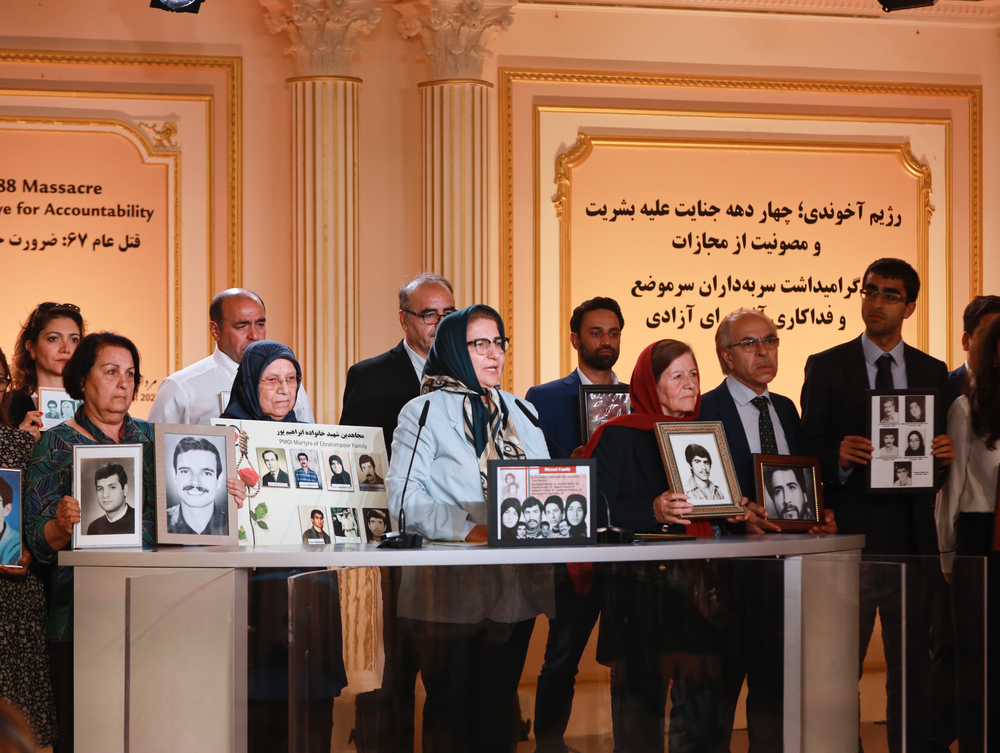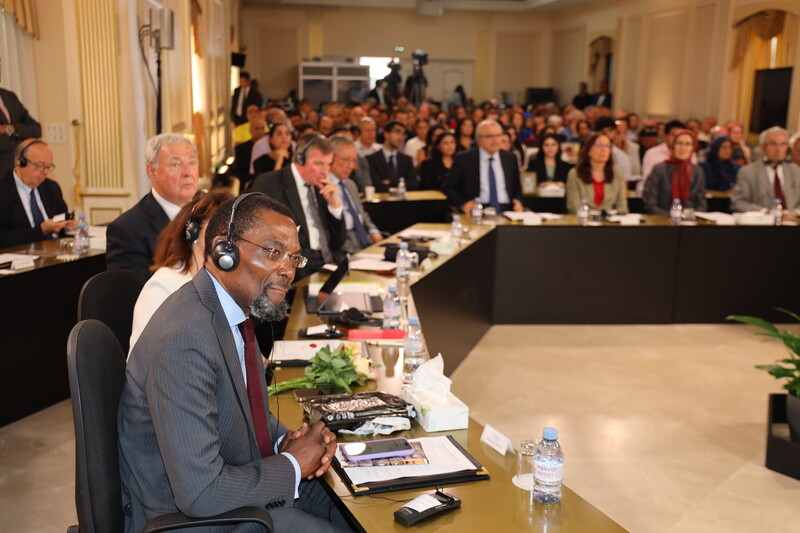At an international conference on 21 August 2023, several former international judges and pre-eminent jurists joined distinguished politicians from around the world to call for justice and accountability concerning one of the most horrifying atrocities post World War II: the 1988 massacre of 30,000 political prisoners in Iran.
The event, titled “1988 Massacre, Imperative for Accountability,” took place in Auvers-Sur-Oise, the headquarters of the National Council of Resistance of Iran (NCRI), just north of Paris. The conference aimed to shed light on the massacre, emphasizing the urgent need to hold Iranian leaders accountable for their crimes.
The 1988 massacre marked a dark chapter in Iran’s history, where thousands of political prisoners, including a significant number from the People’s Mojahedin Organization of Iran (PMOI or MEK), were systematically executed following a fatwa issued by then-Supreme Leader Ruhollah Khomeini. This fatwa declared that individuals who remained steadfast in their support of the MEK were to be sentenced to death. However, the brutality extended beyond this group, encompassing a broader range of political prisoners, including Marxists and other leftist prisoners.
The speakers stressed that the massacre constituted a grave crime against humanity and underscored the importance of utilizing international mechanisms to put an end to the impunity that the Iranian authorities have enjoyed for decades and to ensure that the architects and perpetrators of this atrocity are brought to justice.
Panelists also called attention to current day threats to the fundamental rights of Iranian dissidents, and urged the adoption of policies that safeguard those rights, particularly for PMOI members residing in Albania at the self-built community known as Ashraf 3.
The speakers who lent their voices to this call for justice included Dr. Chile Eboe-Osuji, President of the International Criminal Court (ICC) until 2021; Prof. Leila Nadya Sadat, Special Adviser on Crimes Against Humanity to the ICC Prosecutor until August 2023; Prof. William A. Schabas, a renowned authority on genocide; Prof. Wolfgang Schomburg, a former Judge at the UN International Criminal Tribunal for the former Yugoslavia (ICTY) and the UN International Criminal Tribunal for Rwanda (ICTR); Oleksandra Matviichuk, the 2022 Nobel Peace Prize laureate; Prof. Sir Geoffrey Nice KC, the lead prosecutor at the trial of Slobodan Milošević; Prof. Vilenas Vadapalas, former Judge at the General Court of the European Union; Prof. Valeriu M. Ciucă, former Judge at the General Court of the European Union; Sheila Paylan, former Human Rights Officer and SGBV Specialist at United Nations human rights office; Rt. Hon. David Jones MP, former UK Secretary of State for Wales; Prof. Alejo Vidal Quadras, Vice President of the European Parliament (1999-2014); and Tahar Boumedra, Director of Justice for the Victims of the 1988 Massacre in Iran (JVMI) and Chief of UNAMI Human Rights Office until 2011.
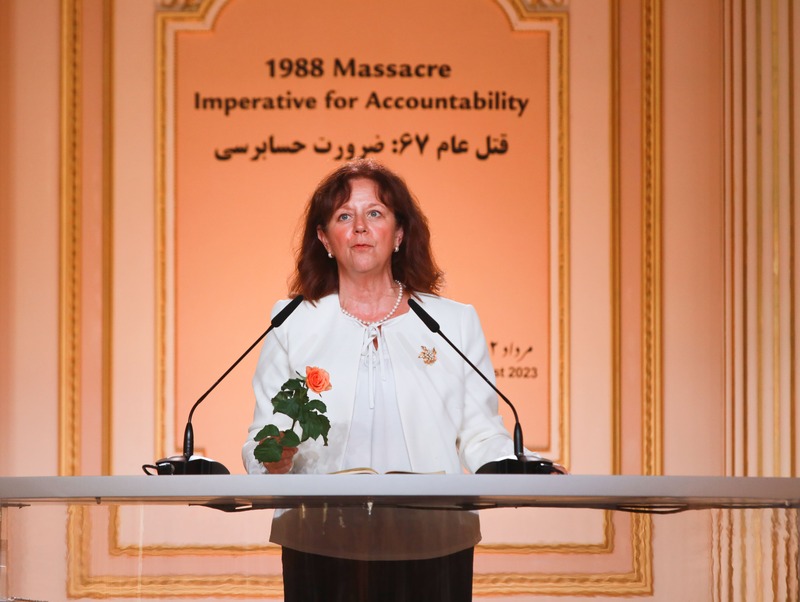
The testimonials from survivors of the 1988 massacre and the families of the victims underscored the ongoing pain and suffering caused by the Iranian authorities’ actions. Many of those executed had already served their sentences, and the authorities’ refusal to disclose burial sites has left families in anguish, unable to properly mourn their loved ones. This further highlighted the pressing need for justice and accountability.
Dr. Eboe-Osuji, former ICC President and Legal Advisor to the UN High Commissioner for Human Rights, announced his support for a UN Commission of Inquiry into the 1988 massacre.
Prof. Sadat reiterated that the “atrocity cascade” perpetrated in the summer of 1988 amounted to “crimes against humanity under international law.”
Prof. Schabas agreed it was time to hold the Iranian authorities accountable for the 1988 massacre, pointing out that in Iran today there is a “regime with a thirst for capital punishment.”
Judge Schomburg added that the perpetrators of the 1988 massacre must be held accountable, including through the establishment of an International, Impartial and Independent Mechanism.
Maryam Rajavi, President-elect of the National Council of Resistance of Iran (NCRI), emphasized the significance of seeking justice for the victims of the 1988 massacre, characterizing it as a moral imperative and a symbol of resistance against oppression. She called for the prosecution of Iranian leaders, including Ebrahim Raisi, the current president, who sat on the 1988 Death Commission in Tehran as Deputy Prosecutor. Rajavi stressed that holding these individuals accountable would send a powerful message of justice and serve as a crucial step toward ending impunity in Iran.
Throughout the conference, speakers criticized the international community’s silence and inaction over the years, expressing their belief that the tragedy of the 1988 massacre is interconnected with the ongoing human rights abuses and executions occurring within Iran today. Many participants called for an immediate, independent international investigation into the massacre to ensure that the truth is revealed and justice is served.
As the conference concluded, the resounding call for justice and accountability echoed loudly. The conference not only shed light on the horrors of the past but also ignited a fervent determination to ensure that those responsible for the 1988 massacre are held accountable for their actions. The collective voices of former judges, legal scholars, and politicians, along with the moving testimonials of survivors, serve as a reminder that the pursuit of justice knows no bounds and that the world must stand united against impunity and human rights abuses.
